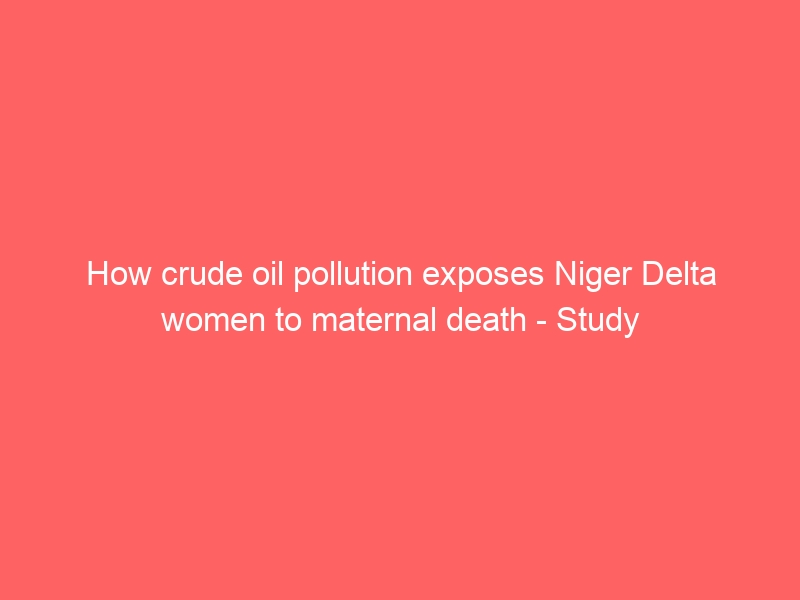Latest report by experts reveal that women residing in areas with high exposure to oil pollution in the Niger Delta are more prone to premature rupture of membranes and severe vaginal bleeding after childbirth as compared to women residing in areas with low exposure, making pollution prevention pivotal to achieving maternal death reduction in the region.
In a new study, researchers found that women in high exposure areas of the Niger Delta had a higher incidence of premature rupture of membrane (PROM), caesarean section and severe vaginal bleeding after childbirth compared to women in areas with low exposure to oil pollution.
A premature rupture of the membrane occurs when there is a rupture of the amniotic sac before labour begins.
ALSO READ: GbaramatuVoice has done well in telling the Niger Delta Story – Prof. Harriman
In addition, women in high exposure areas were about two times at high risk of PROM and severe vaginal bleeding after childbirth compared to women in low exposure areas. Also, pregnancy-induced hypertension and caesarean section had no association with maternal exposure area status to oil pollution.
The 2022 study entitled “Exposure to oil pollution and maternal outcomes: The Niger Delta prospective cohort study” was in the journal, PLoS One. It involved Dr Onome B Oghenetega at the Babcock University, Ilishan-Remo in collaboration with Professor Michael Okunlola, Professor Godson R E E Ana, Dr Oludare Morhason-Bello and Professor Oladosu Ojengbede.
The researchers had examined the effect of maternal exposure to oil pollution on pregnancy outcomes in 1720 pregnant women aged 18–45 years, who have been residing in the selected areas for at least three years that were attended randomly selected health facilities in the Niger Delta.
Data were collected using an interviewer-administered questionnaire and a review of medical records from April 2018 to April 2019. A total of 1418 women completed the follow-up and were included in the analysis.
Out of the nine states in the region, Delta and Rivers States were selected as states with high exposure to oil pollution due to the high production activities of crude oil, high crude oil spill record, and the presence of crude oil refineries. Ondo and Edo were selected as states with low exposure due to low production activities and low oil spill record and absence of oil refineries.
Data regarding sociodemographic characteristics, maternal and lifestyle characteristics were collected at the first encounter with study participants in the antenatal clinic. Data on adverse maternal outcomes were collected from pregnant women that were followed prospectively from their index pregnancy to 24 hours after delivery.
The researchers said the study supports the campaign for early antenatal care for women in the Niger Delta region and optimum obstetric care for women with PROM in the oil-polluted communities which are pivotal in reducing its adverse consequences.
They also urged the effective implementation of community-based distribution of misoprostol for the prevention of severe vaginal bleeding after childbirth, especially in oil-polluted communities to reduce maternal death in the region.












